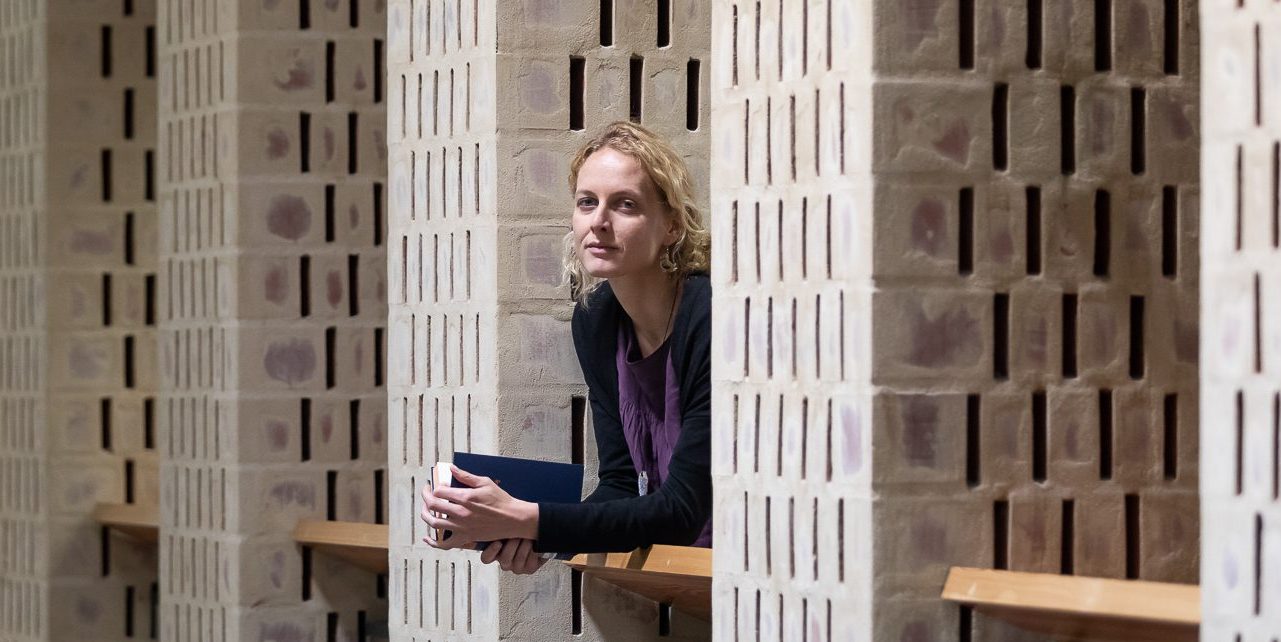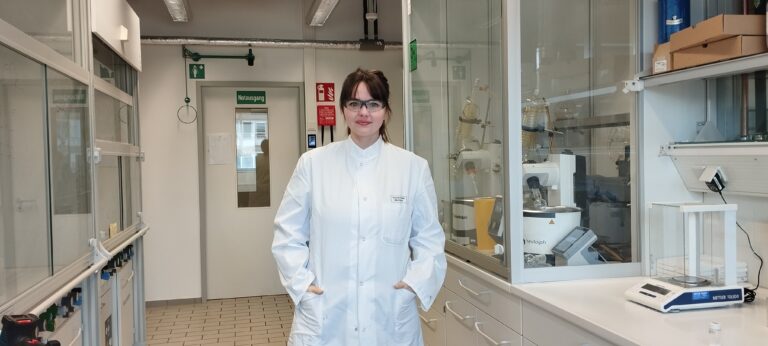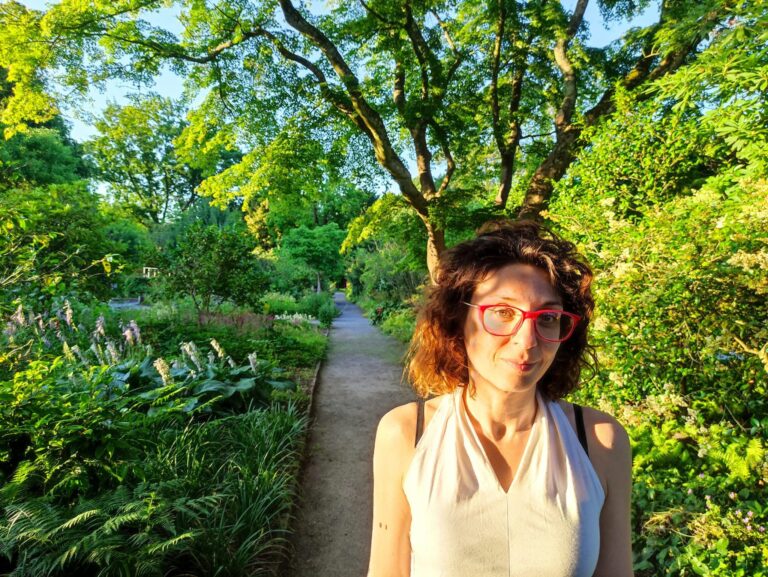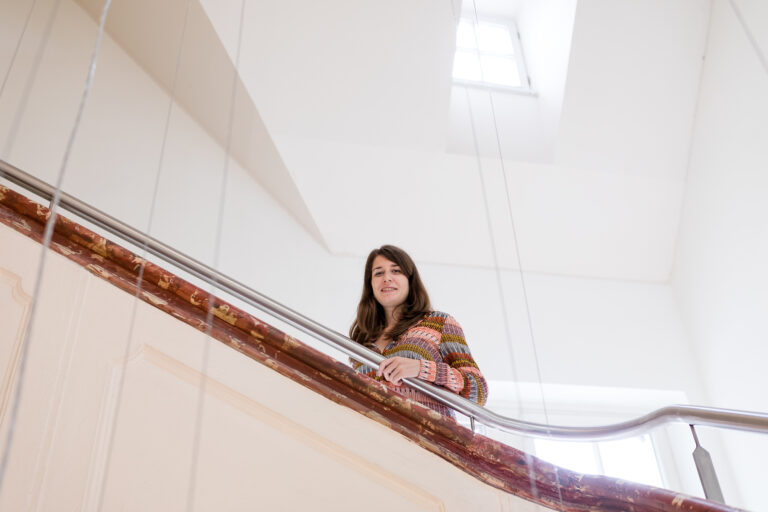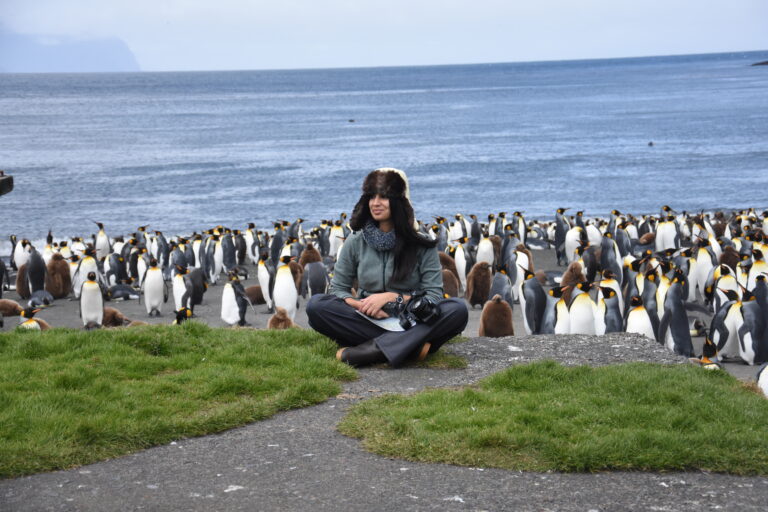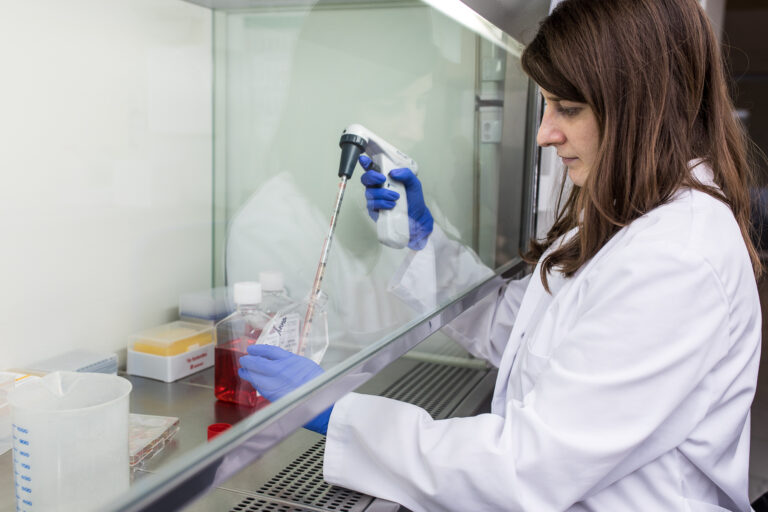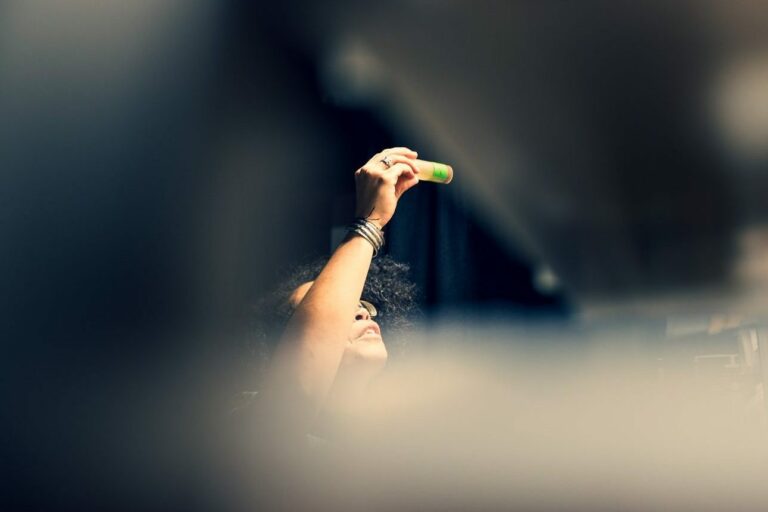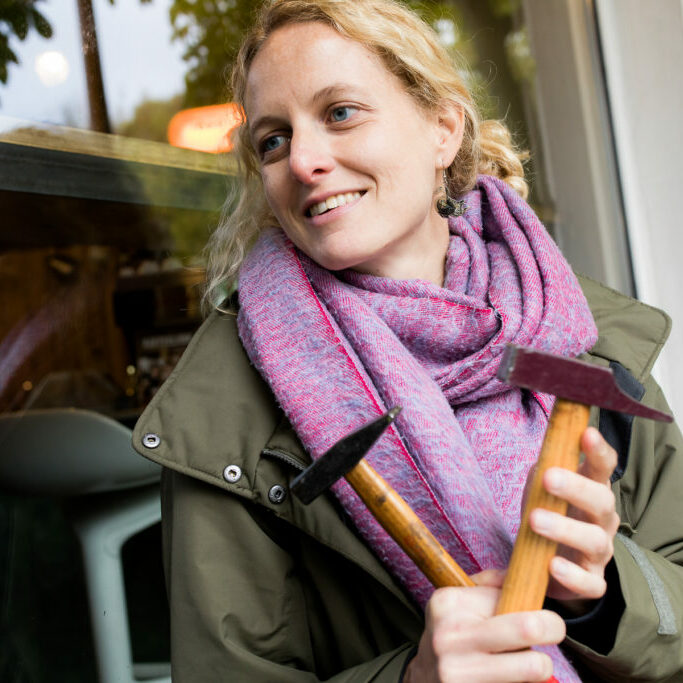
“The Broadness Trick” – an Interview With Our Philosopher of Biology Dr. Chiara Ferrario
In the series “33 questions” we introduce, in no particular order, our WiRe Fellows who are currently working on a research project here at the University of Münster. Why 33? Well, if we think of the rush hour of life, it is kind of the age that lies in its middle. And we also like the number😉.
In today’s episode, we are speaking with Dr. Chiara Elettra Ferrario, Philosopher of Biology dealing with complicated questions about the differences and similarities between human and non-human culture.
1. What motivated you to work in the field of philosophy?
I think I chose philosophy because I could not (and still can’t) make up my mind about which field of knowledge is more interesting – specializing in one means excluding all others. So I picked philosophy, which does the broadness trick excellently, and allows one to ask deep questions about pretty much anything.
Choosing philosophy of biology over other types of philosophy was mainly a matter of dissatisfaction with traditional philosophical approaches, which in my opinion often investigate humans from a skewed perspective – failing to appreciate that we’re just another type of organism on earth.
2. Describe your daily work in three words.
Reading, thinking, writing.
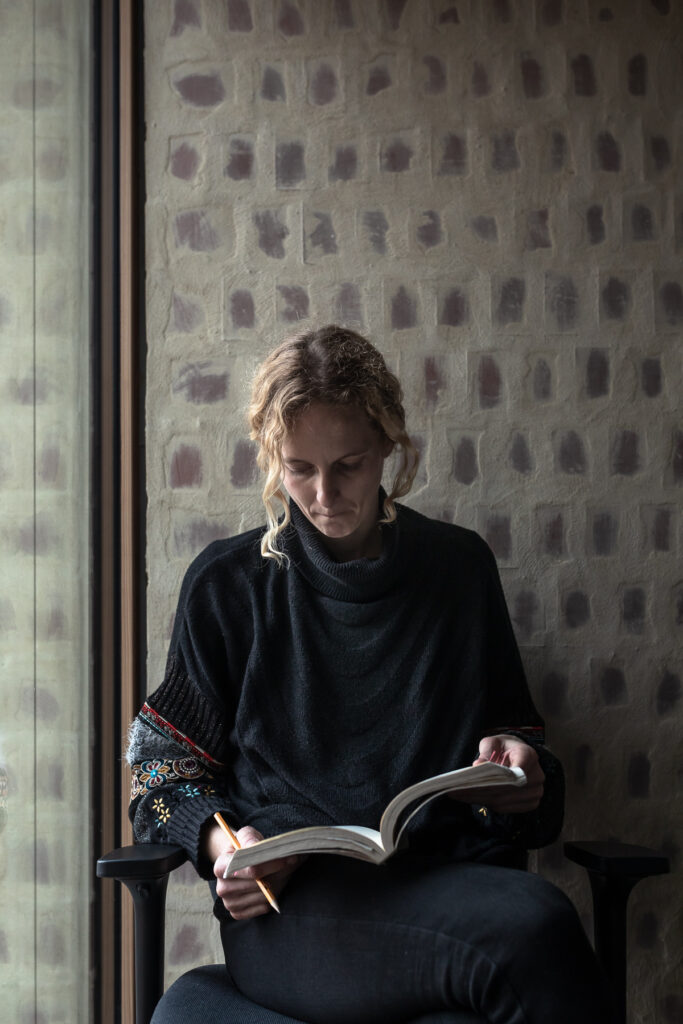

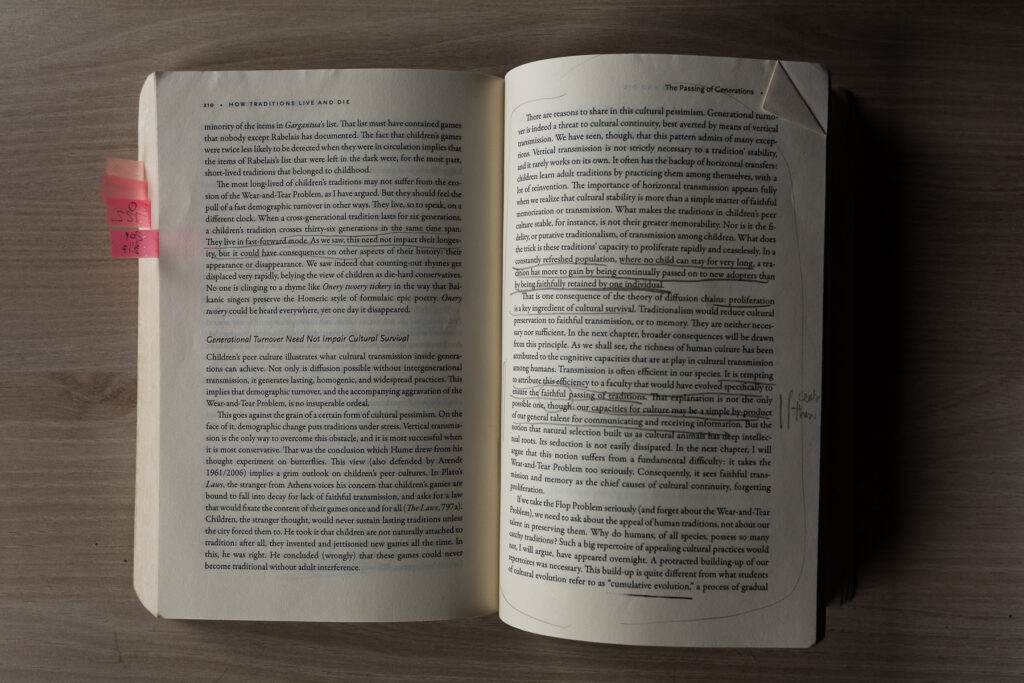
3. Describe your research topic in three words.
Understanding human origins.
4. A good philosopher needs…
to be smart. This to me means: to be able to think clear and sharp, to structure complex information effectively, to delve into details while keeping the bigger picture at glance. Curiosity, relentlessness and patience help a great deal (philosophical work is a slow and piecemeal endeavor).
5. What is the best experience you have had as a researcher?
Getting excited over absolutely tiny points no one knows or cares about.
6. What was your biggest research disaster?
Getting excited over absolutely tiny points no one knows or cares about 😉
7. Which (historical) important scientist would you like to have dinner with? What would you ask?
Charles Darwin, to give him a good handshake out of sheer admiration (and because he looks adorable). But also David Lewis (an American philosopher), to ask him about his theory of counterfactuals and more specifically about his idea that “possible worlds” (parallel worlds that don’t causally interact with ours) actually exist.
8. If time and money were no object: which research project would you like to do?
I would actually like to conduct ethnological fieldwork on cultural transmission. Part of my current project revolves around understanding how humans became a cultural species, i.e. a species that relies so much on socially transmitted information (other animals learn very little from their conspecifics; we learn from other humans straight from birth. We are “marinated in culture” – as one of my supervisors once wrote). Western societies are clearly inadequate models to understand the origins of this process, but some indigenous people still live in conditions that are closer to our hunter-gatherer ancestors. Testing theoretical hypotheses in such circumstances would be a dream come true.
9. What is your favorite research discipline other than your own?
As per first answer, I can’t choose! I could say biology, architecture or linguistics, without feeling I’ve really picked the right one.
10. What do you consider the greatest achievement in the history of science / your field?
I think it’s pretty obvious I’m amazed by evolutionary theory. What’s especially brilliant about it is that it didn’t require any special piece of fancy equipment or brand-new discovery. Essentially, Darwin re-interpreted data about the natural world that were already largely available. He “just” looked at them from a different perspective, thereby creating an enormous amount of novel explanatory potential. It really shows the power of shifting theoretical stances. If only I knew more about it, I’d probably also mention some physics achievement like discovering the Higgs boson or gravitational waves.
11. Which experience in the world of science disappointed you most?
In general, the “publish or perish” system. It is stressing, and overall selects for quantity over quality of publications – which we really, really don’t need.
12. What was the funniest moment you had in science?
Perhaps having to do my PhD defense remotely at 3 a.m. (I was in Austria, the panel in New Zealand), and celebrating with beer and breakfast at 7 a.m. afterwards?
13. How did you survive your PhD time?
I’m not sure I did that very successfully. I took a lot of time off, and made many friends. This helped, but not necessarily in the PhD way….
14. What direct or indirect relevance does your research have for society?
Disciplines like philosophy of biology tend to have very indirect, but at the same time very broad impact on the real world. Technically everything I look at has little immediate empirical relevance, as philosophers deal mostly with theoretical aspects of science. However, as I said before, changes in theories can have extremely powerful long-term impact on the way we look at the world, and on how we conduct empirical and applicative research (Learn more about Chiara’s thoughts on this point here).



15. How did you imagine the life of a researcher when you were a high school student?
I really didn’t. I guess that future was not my concern back then and I was living very much in the here and now.
16. Is it actually different? In what way?
As I said, I didn’t think much of how the life of a researcher could be back in high school, but some things turned out to be quite different compared to my expectations when I first started doing research. One thing I didn’t consider is that one needs to sit down a lot (which is boring and unhealthy). I’m also amazed at the huge social component in research: it’s often not about ideas “in the vacuum” so to say, but about people having such these ideas.
17. What do you like most about the “lifestyle” of a researcher? And what least of it?
Freedom, and lack of structure. They are two sides of the same coin in a way. Also international mobility works the same way: fun and a privilege, but also quite destabilizing.
18. Do you think your career would have evolved differently if you were a man?
To be honest, I tend not to pay too much attention to the gender gap. I tend to think of people in science / research as “genderless” – but of course this is not real. So perhaps yes, I think it would have been different. One thing I notice is that men tend to be more confident; women should perhaps push themselves to copy the attitude.
19. If you were the research minister of Germany, what would you do to improve the situation of women in science?
Ah, difficult question. One thing I have been thinking about recently are “women quotas” (the practice of artificially reserving a certain percentage of places for women in professions). They seem to run contrary to meritocracy at first sight, and therefore get criticisms of unfairness. However, I do not think they are unfair; one needs to understand what they really aim at doing, and in what context. It is historically a fact that academic environments are male-dominated; it is also a fact (supported by data) that researchers tend to associate (for collaborations, networking , etc.) with people of the same gender. So increasing the amount of women in academia would serve, for example, to restore equal opportunities of professional networking for women, which would be otherwise currently disadvantaged in this respect.
So in general, perhaps, I would advise politicians to better explain why temporary strategies like women quotas are needed, and why they are not in fact unfair.
20. What is the biggest challenge for you when it comes to balancing family and career?
Mobility.
21. How often do you as a friend / partner / mother / daughter feel guilty when you have to meet a deadline again?
Close to 100% of the times. I tend to be more productive in the vicinity of deadlines, and I always overwork these hours – neglecting everything (and everyone) else.
22. How did you imagine your future as a child? What profession did you want to pursue?
As I said, I didn’t imagine much in the way of professions. I remember I’ve said once in my adolescence that I wanted to be something like a homeless person (no commitments, no property), so that I could observe life unfolding around me from the quietest point of view. My mum was outraged and luckily I didn’t persist in my plan (but after all philosophy is also about observing the world around you from a very quiet viewpoint).



23. How do you keep your head clear when you are stressed?
I watch crappy TV series (shame on me).
24. What is your favorite German word?
Feierabend !!! But before I learned that it was fertig.
25. What makes you most happy about the world?
Silence, and nature. And good people.
26. What or who inspired you to become a philosopher?
My high school philosophy professor. An admirable woman.
27. Which of your traits bothers you the most in your daily work?
The inability to prioritize whatever should be prioritized. I tend to start from low-priority tasks and then panic about high-priority stuff when there’s little time left.
28. What worries you most about the world?
Booming demography.
29. Your favourite TV series?
The Wire. I also enjoyed recently The Marvelous Mrs. Maisel.
30. Which hobby have you given up for a life in academia?
Painting and pottering. I miss both activities very much.
31. If you could travel in time: in which epoch and at which discovery or event would you have liked to have been there?
Origin of life on earth! Technically nobody was around to discover that, but I would really like to know how it happened. There are few plausible explanations around, but no one knows the details and the evidence is buried in the eons. We have limited hopes to get a definitive answer on how it really went, so first-hand experience would be great.
32. What is your favorite place in Münster?
Perhaps the Botanical Garden and wherever there is water, like the channel.
33. What surprised you most about the University of Münster?
How nice and helpful the people at International Services were!

